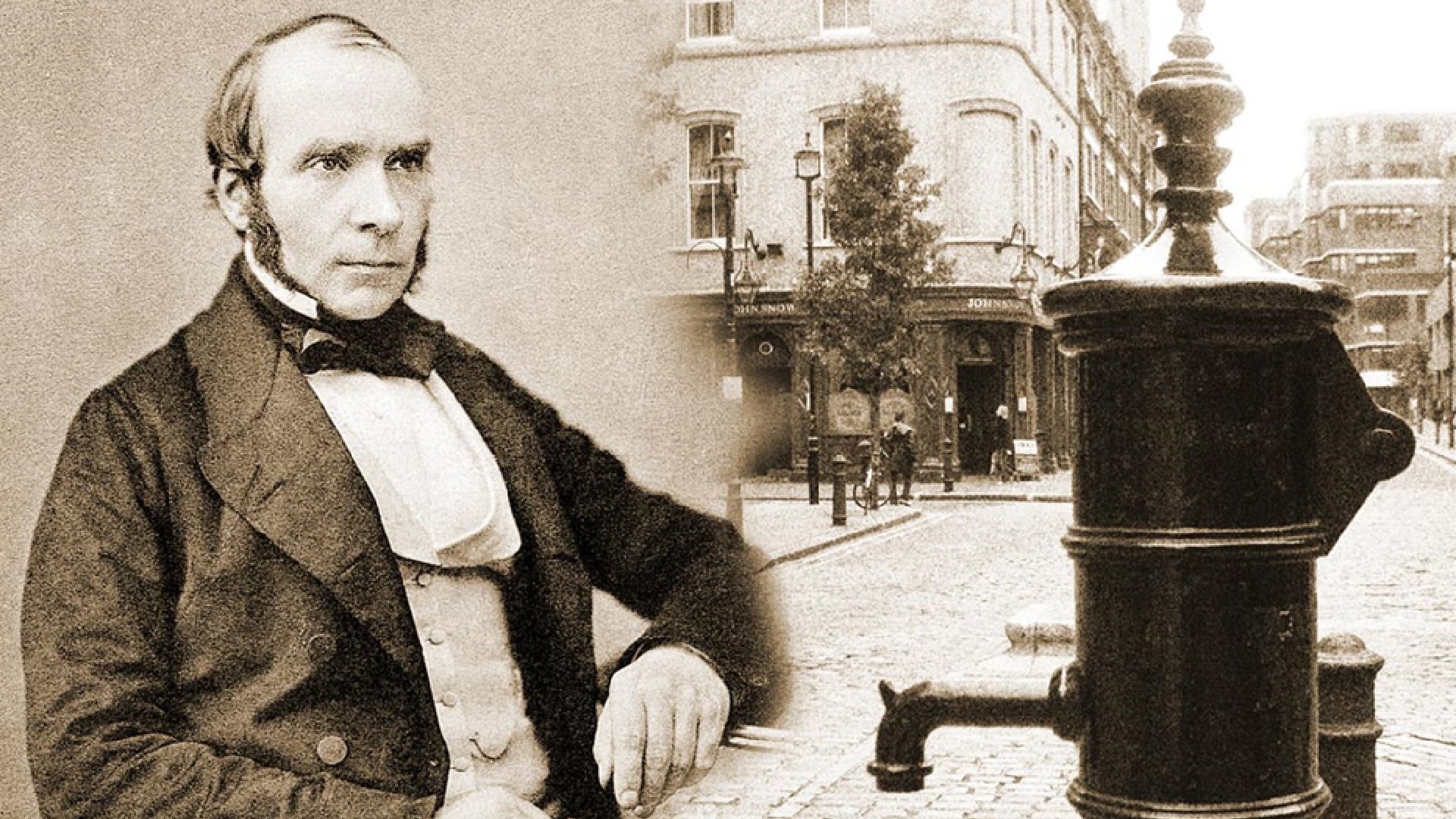John Snow (1813-1858) was able to discover the cause of the cholera outbreak in London in 1854 and therefore also ending it. Because of this, he is considered to be the founder of epidemiology.
John Snow (1813-1858) was able to discover the cause of the cholera outbreak in London in 1854 and therefore also ending it. Because of this, he is considered to be the founder of epidemiology.
Cholera
In 1854 there was a cholera outbreak in London that resulted in a huge number of deaths. At that time, most scientists believed in the miasma theory. This theory implies that these (and other) epidemics are caused by "bad air" from, for example, garbage, the sewer, or an open grave. Snow was skeptical of this theory and he investigated the places where infected and deceased people lived in London. This study showed that many people lived close to a particular public water pump and also that many of the deceased had drunk the water from this well. Snow decided to perform chemical and microscopic tests on the water from the pump, but nothing unusual was found in the water. Nevertheless, the local government decided to shut down the water pump based on Snow's dispersal study. After this closure, the cholera outbreak soon ended. It was later found that the water from the well had been "contaminated" by a sick baby. Because John Snow was the first to conduct a dispersal study in this way to determine the origin of an epidemic, John Snow is considered the founder of epidemiology.
Infection Theory
Snow ultimately failed to prove that a pathogen was actually the cause of the cholera outbreak. But two years after his death, in 1860, his theory of infection became more accepted after Louis Pasteur demonstrated that microscopic organisms can cause disease. Eventually, the pathogen for cholera was discovered in 1884 by Robert Koch: this was Vibrio cholerae.

